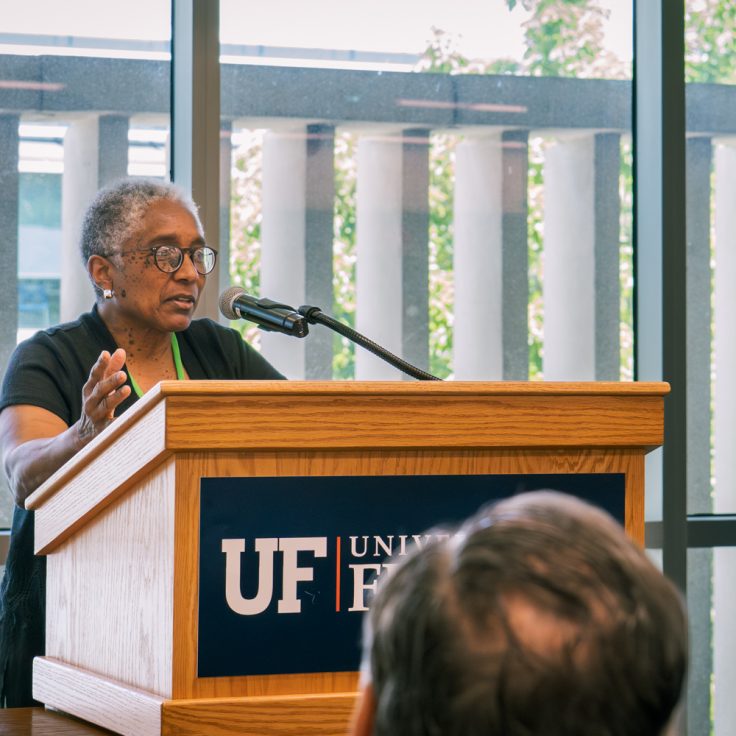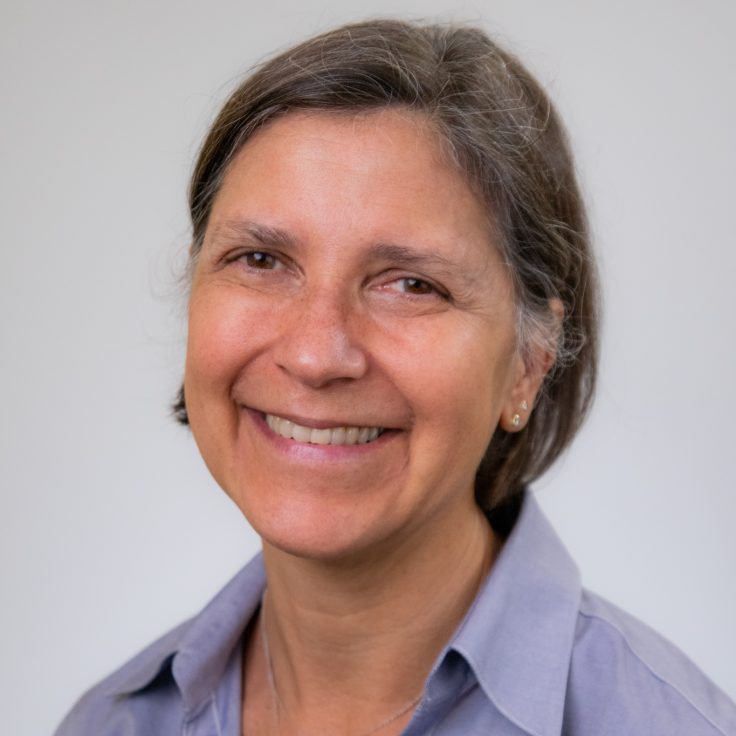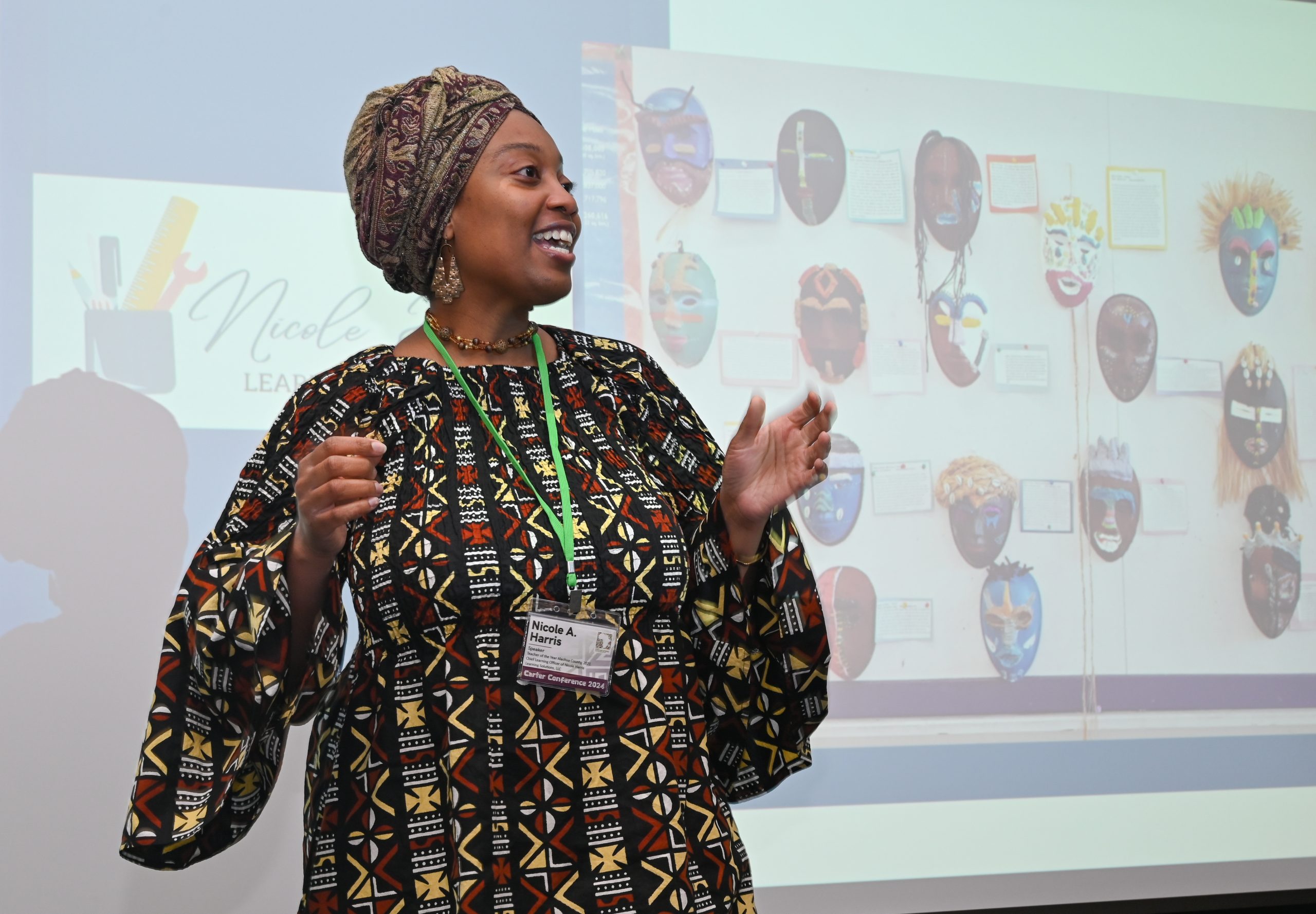
Nicole Harris leads a discussion on innovative ways of infusing Africa and the diaspora in K-12 curriculum. Photo by Matthew Dupont.
UF’s Carter Conference examines Africa’s future
Center for African Studies propels insight and collaboration on contemporary African studies
The University of Florida’s Center for African Studies hosted its annual Gwendolen M. Carter Conference (opens in new tab), uniting leading experts, scholars, students, and community members to address pressing issues facing Africa’s people and environments.
Held on March 21 and 22, the conference served as a platform for fostering dialogue, collaboration, and knowledge exchange as participants examined the continent’s future challenges and opportunities. The two-day event featured presentations, workshops, and discussions covering a broad spectrum of topics, from environmental sustainability to public health and education.
Presenters from nine states and six countries joined dozens of UF faculty members to showcase their expertise and engage in robust discussions. Attendees had the opportunity to interact with scholars in the field and participate in sessions that examined the complexities of contemporary African topics.
“We wanted to bring the very best minds in African studies to the University of Florida — experts who are addressing the continent’s greatest challenges, helping its peoples meet their opportunities, and working with them to overcome injustice and inequalities,” said Miles Larmer, the center’s director and professor of history.
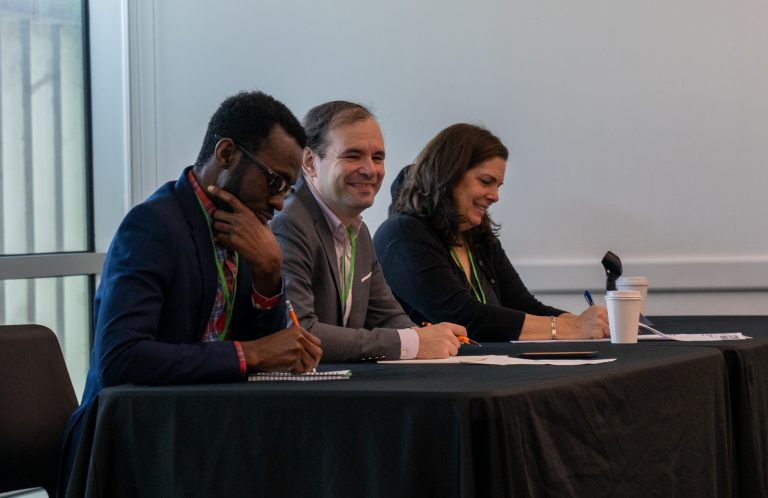
This year’s conference, themed “CAS @ 60: New Directions in African Studies,” explored the evolving landscape of African studies. Larmer underscored that the center’s future will be shaped by the ‘new directions’ of Africa and Africans, emphasizing the pivotal role of the continent’s youthful and expanding population in addressing urgent global challenges.
“The center will engage with them, provide educational opportunities and meaningful research that addresses their hopes and ambitions, and do everything we can to contribute to the positive future development of the continent and its peoples,” Larmer said.
Many of the conference’s speakers, including Zainab Usman (opens in new tab) of the Carnegie Endowment for International Peace and Bright Gyamfi (opens in new tab) from the University of San Diego, recently completed their doctorates. Larmer praised their fresh insights, which complemented those of more established scholars.
“Innovation requires us to listen and learn from the newest generation of African Studies scholars, many from the continent itself, who are challenging everything we thought we knew about African studies,” Larmer said.
The conference’s theme of ‘new directions’ is fitting for the times. As the center looks toward its seventh decade, Larmer’s arrival during the fall semester of 2023 has ushered in a new chapter. With a distinguished career spanning over a decade at the University of Oxford and a robust portfolio of research in the modern history of southern and central Africa, Larmer brings expertise as a leading authority in the field to his new role.
“I’m constantly delighted — and only occasionally intimidated — by the responsibility of guiding one of America’s most important centers of excellence in African studies into an exciting but always uncertain future,” Larmer said.
In his new role, Larmer will spearhead initiatives to promote interdisciplinary research, foster academic collaboration, and elevate the study of Africa within the university community and beyond. His vision for the center includes engaging in critical conversations about Africa’s past, present, and future while uniting a robust population of over 100 affiliated teaching and research faculty.
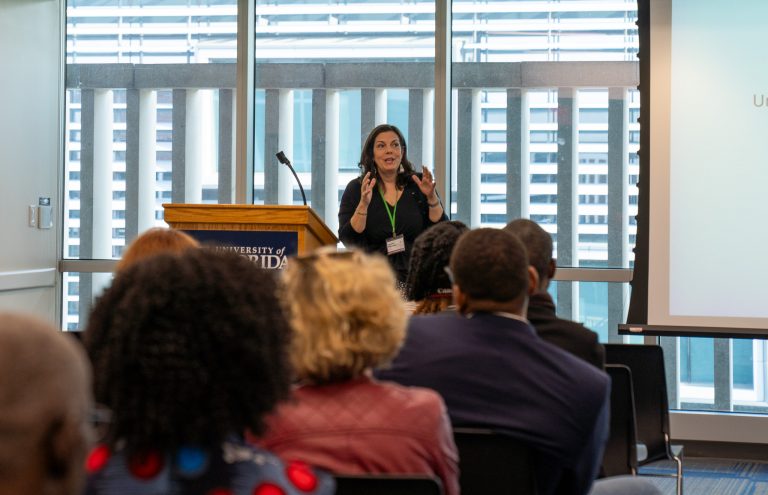
At the conference, UF students, faculty, and former directors of the center made notable contributions. Agnes Leslie, senior lecturer in the Center for African Studies, convened a panel focused on creative ways of teaching about Africa.
“Thanks to the center’s decades of outreach to local communities and K-12 schools, we’re able to discuss cutting-edge issues alongside educators who explain how schools here and nationwide are innovating in teaching about Africa,” Larmer said.
In another session, Leonardo Villalón, professor of African politics, led a roundtable on collaborative research in conflict-affected areas, drawing lessons from the Sahel in partnership with members from the Sahel Research Group (opens in new tab) and the International Crisis Group (opens in new tab).
“We have world-leading experts here,” Larmer said. “UF’s Center for African Studies and the university’s Africa-related programs are delivering cutting-edge research that is positively impacting the lives and livelihoods of millions of African people.”
For over thirty years, the center has honored the legacy of renowned scholar Gwendolen M. Carter with annually organized lectures or conferences. Carter’s work focused on the politics of inequality in southern Africa, significantly advancing African studies as an academic discipline.
“Key issues, themes, and priorities will come and go,” Larmer said. “What remains true is that the best way to address our challenges and problems is to meet, talk, and listen together to diverse voices and perspectives.”
Learn more about the Center for African Studies here (opens in new tab).
